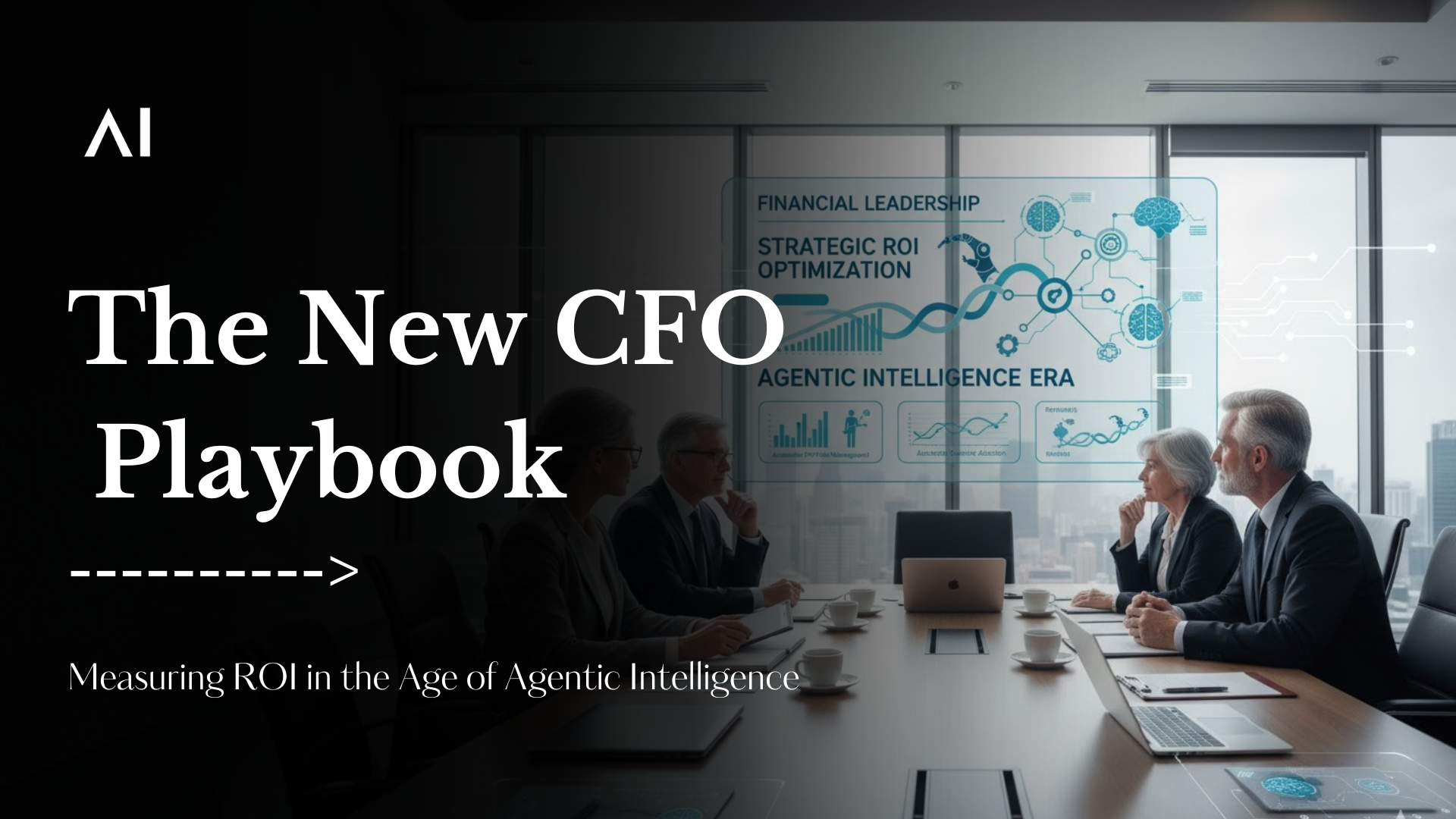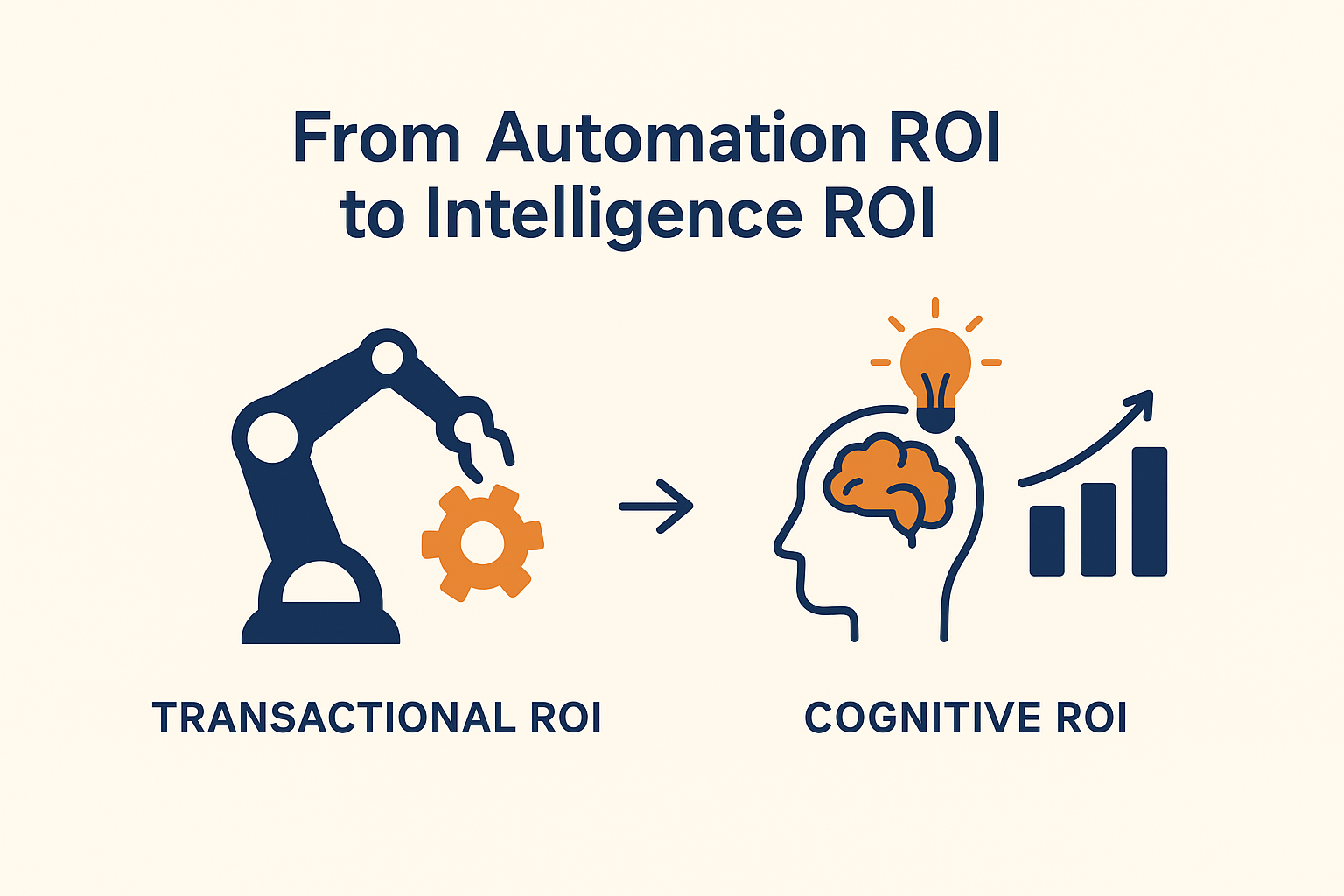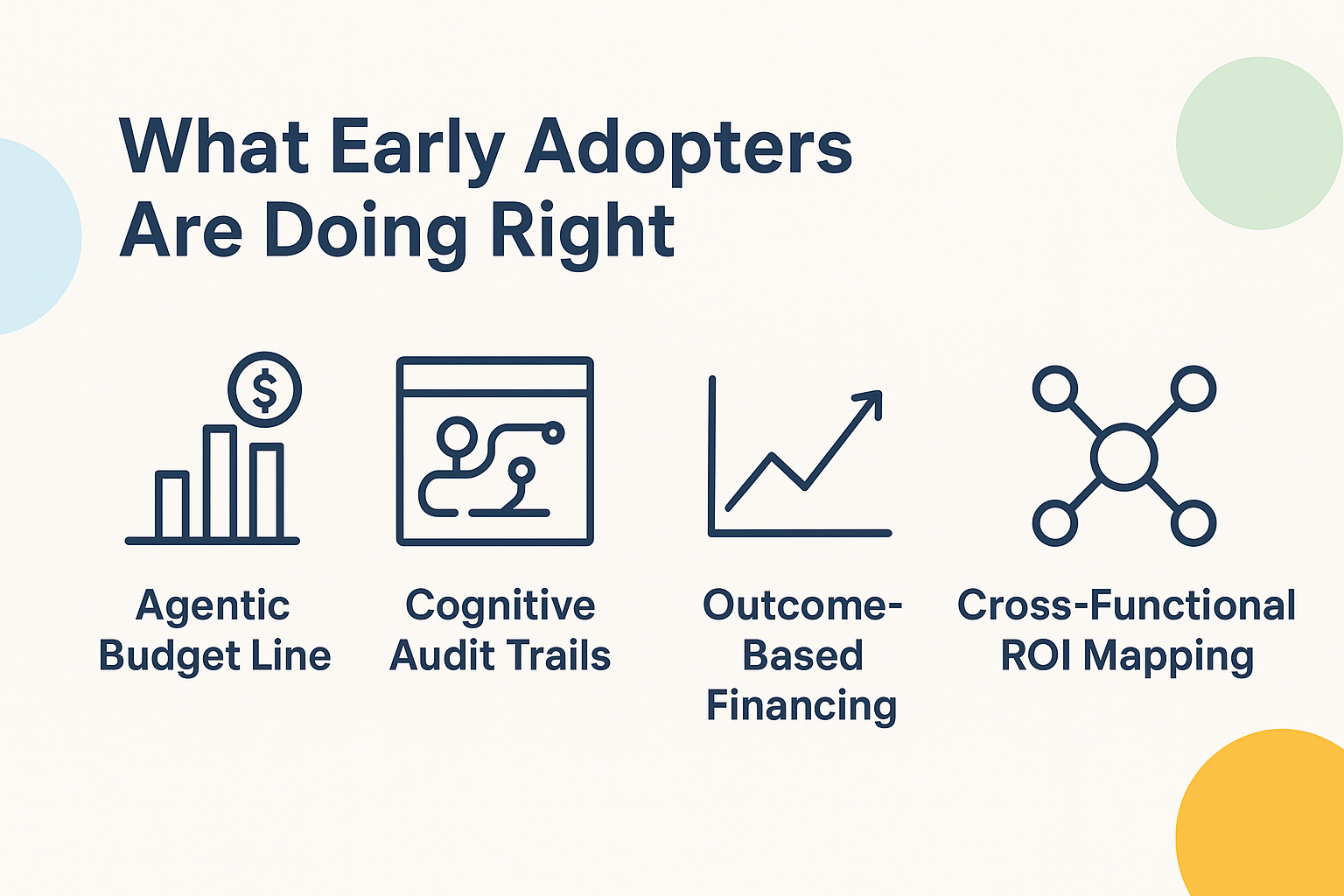Join our WhatsApp Community
AI-powered WhatsApp community for insights, support, and real-time collaboration.
CFOs must rethink ROI for the Agentic AI era—shifting from cost savings to measuring intelligence, adaptability, and compounding cognitive value across the enterprise.

| Why is AI important in the banking sector? | The shift from traditional in-person banking to online and mobile platforms has increased customer demand for instant, personalized service. |
| AI Virtual Assistants in Focus: | Banks are investing in AI-driven virtual assistants to create hyper-personalised, real-time solutions that improve customer experiences. |
| What is the top challenge of using AI in banking? | Inefficiencies like higher Average Handling Time (AHT), lack of real-time data, and limited personalization hinder existing customer service strategies. |
| Limits of Traditional Automation: | Automated systems need more nuanced queries, making them less effective for high-value customers with complex needs. |
| What are the benefits of AI chatbots in Banking? | AI virtual assistants enhance efficiency, reduce operational costs, and empower CSRs by handling repetitive tasks and offering personalized interactions. |
| Future Outlook of AI-enabled Virtual Assistants: | AI will transform the role of CSRs into more strategic, relationship-focused positions while continuing to elevate the customer experience in banking. |
For the last decade, CFOs have built business cases for automation in a predictable way:
reduce manual work, cut costs, improve throughput, report faster. Done.
But here’s the thing—Agentic AI breaks that math.
Unlike traditional automation, these systems don’t just execute processes; they think, remember, reason, and collaborate across departments. They self-learn from context, re-optimize workflows, and often uncover revenue or efficiency opportunities humans didn’t even know existed.
So, the old “X hours saved = Y dollars saved” formula? It’s like using a ruler to measure gravity. You need a new playbook.
For a closer look at how enterprises are deploying reasoning-driven systems, explore how LLM-powered AI agents form the foundation of adaptive automation.
Let’s break this down. Traditional automation ROI is transactional—it’s about replacing repeatable human effort.
Agentic Intelligence ROI is cognitive. It compounds over time as the system builds memory, contextual intelligence, and reasoning depth.
The key difference:
For CFOs, that means value shifts from efficiency metrics to intelligence metrics. You’re not just cutting costs—you’re compounding insight.
Think of it as moving from static productivity to dynamic adaptability.

To measure Agentic Intelligence properly, finance leaders need to look beyond visible productivity gains and start quantifying the hidden layers of value creation.
Your teams aren’t just slower because of volume—they’re slower because of mental clutter.
Agentic systems lift that burden by automatically triaging, summarizing, and prioritizing.
Quantify this by:
Every minute saved from context chaos is a minute redirected toward strategic thinking. That’s not soft ROI—it’s tangible focus capital.
Every enterprise CFO knows that information asymmetry kills agility.
Agentic AI dissolves that by making data liquid—flowing seamlessly across silos, accessible in real time, and interpretable through natural language.
You can track this through:
Data liquidity turns decision-making from a bottleneck to a bloodstream. It’s the quiet foundation of faster, smarter enterprises.
Many banks have already seen this transformation firsthand—Fluid AI’s AI in banking and finance is shifting from static automation to fluid, reasoning-driven decision ecosystems.
This is where the compounding magic shows up.
When AI agents collaborate autonomously—triaging support tickets, orchestrating customer communications, preparing financial summaries—outcomes accelerate in ways that ripple across the organization.
Indicators of outcome velocity include:
You’re no longer measuring productivity per person—you’re measuring speed per system.
CFOs traditionally benchmarked automation success by:
In the age of Agentic Intelligence, that’s table stakes. The real winners measure across four value dimensions:
What this really means is: you’re no longer measuring what people do—you’re measuring how effectively intelligence flows.
Here’s the most overlooked part: Agentic systems remember.
When an AI agent learns how to triage a customer issue, it doesn’t forget. When it sees how your pricing model performs, it retains that insight. That memory compounds value daily—like intellectual capital that never sleeps.
From a finance perspective, this reclassifies AI from an expense to an appreciating digital asset.
Imagine a balance sheet where:
The longer your Agentic ecosystem runs, the sharper, faster, and more valuable it becomes. That’s not depreciation—it’s cognitive appreciation.
As enterprises begin deploying agent ecosystems, autonomous AI agents are emerging as the real drivers of resilience, adaptability, and enterprise defense.
Most CFOs still use static ROI models—calculate implementation cost, estimate annual savings, divide. Simple. But Agentic AI doesn’t follow linear returns.
Instead, its ROI curve looks exponential:
Your cost doesn’t change, but your decision velocity and insight precision explode. Static payback models can’t capture that curve.
The new ROI horizon: think in compound value cycles, not payback periods.
Here’s a practical framework CFOs can adopt to move from automation-era metrics to Agentic-era metrics.
These new KPIs shift your focus from effort saved to intelligence multiplied.
Forward-looking CFOs in banking, telecom, and manufacturing are already reframing their financial narratives around Agentic ROI.
Here’s how they’re structuring their playbooks:

These companies aren’t just cutting costs—they’re building intelligence infrastructure.
Want to see how internal ecosystems evolve around these new KPIs? Check out Fluid AI’s internal-facing AI solutions that build cognitive efficiency across finance, HR, and operations.
There’s a myth that Agentic AI replaces people. In reality, it multiplies them.
When cognitive agents handle routine reasoning—like report preparation, data validation, or context summarization—humans move up the value chain. They focus on strategic modeling, interpretation, and creativity.
For CFOs, that translates to:
Agentic AI doesn’t make humans obsolete—it makes judgment the new premium skill.
In a traditional world, ROI was a quarterly report.
In an Agentic world, ROI is a real-time organism.
Your AI agents continuously track, predict, and optimize outcomes—feeding CFO dashboards that evolve daily. Imagine seeing:
It’s not just finance observing performance. It’s finance orchestrating intelligence.
CFOs who adapt to Agentic Intelligence aren’t just modernizing—they’re future-proofing.
Because in five years, enterprises won’t ask, “What’s our automation ROI?”
They’ll ask, “How intelligent is our organization’s capital?”
And those who’ve built memory-driven, reasoning-rich agent ecosystems will already have the answer.
The new ROI isn’t just measured in dollars saved. It’s measured in decisions accelerated, risks prevented, and intelligence retained.
That’s the new CFO playbook—and the foundation of enterprise value in the Agentic Age.
Fluid AI is an AI company based in Mumbai. We help organizations kickstart their AI journey. If you’re seeking a solution for your organization to enhance customer support, boost employee productivity and make the most of your organization’s data, look no further.
Take the first step on this exciting journey by booking a Free Discovery Call with us today and let us help you make your organization future-ready and unlock the full potential of AI for your organization.

AI-powered WhatsApp community for insights, support, and real-time collaboration.
.webp)
.webp)

Join leading businesses using the
Agentic AI Platform to drive efficiency, innovation, and growth.
AI-powered WhatsApp community for insights, support, and real-time collaboration.